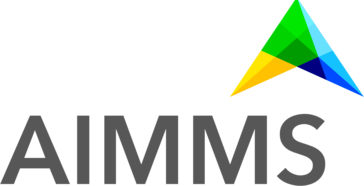Every year, AIMMS and Lehigh University team up to organize the AIMMS-MOPTA Optimization Modeling Competition. This year, the challenge was to develop novel solutions to the H-SARA (Home - Service Appointment, Routing, and Appointment Scheduling) problem. The final presentations of the competition happened early August and the results have been announced.
We got a chance to sit down with Prof. Karmel Shehadeh, who was recently appointed Assistant Professor of Industrial and Systems Engineering at Lehigh University and was the faculty chair for the MOPTA competition this year. Karmel has expertise in the theory and application of operations research in healthcare operations and analytics. She has great advice for students interested in this field.
Congratulations on your appointment at Lehigh University. Can you tell us about yourself, how you came to be involved in this field, and your research interests?
I was born and raised in Amman. I was that kid who was very curious, loved math and science, and had many friends. I used to build simple toys for myself and my friends, taking apart any unused electronics in our house. Then I would put them back together again to see if I could replicate the original design or fix the broken ones. So, it was not surprising to my parents that I chose to study engineering. I got a bachelor's in Biomedical Engineering (BME) from Jordan University of Science and Technology (Irbid/Jordan). As a BME student, I loved learning to use mathematical principles and engineering problem-solving techniques to improve biology, medicine, and healthcare at all levels. This made me more eager to continue my graduate studies. I wanted to fulfill my dream of becoming a researcher and a faculty member who uses her love for math to help others and make the world a better place. I continued with a master's degree in Industrial Engineering from Binghamton University and a Ph.D. in Industrial and Operations Engineering from the University of Michigan. After my Ph.D. I joined Heinz College of Information Systems and Public Policy at Carnegie Mellon University as a Presidential and Dean Postdoctoral Fellow.
My research program’s primary mission is to foster multidisciplinary research efforts involving the advancement and application of novel, data-driven operations research and analytical methods to emerging problems in healthcare (and other service-providing systems). My specific methodological research expertise and interests are in scheduling theory and algorithms development, optimization under uncertainty, and mixed-integer programming. Currently, I am enjoying working with amazing colleagues and friends on solving challenging, real-world optimization problems. These range from healthcare scheduling and capacity planning to home care, hospital readmission, facility location, and last-mile transportation systems. I am always looking for talented and enthusiastic students to work with and mentor. I am dedicating my career and accomplishments to every little dreamer in the world who has a dream as big and exciting.
You mentioned healthcare operations as your main application area. Why did you choose this and how did you start working in this area?
Healthcare systems are complex to manage. They are very expensive to operate, have limited resources and tight capacity (for example, a limited number of ICU beds). Often, they fall short of meeting existing demand. Moreover, healthcare operations are subject to various sources of uncertainty (for instance surgery duration, length-of-stay in ICU, and provider absenteeism). These are hard to predict in advance, especially with limited data during the planning process. There are many complicated constraints and heterogeneous stakeholders (hospital managers, physicians, patients, insurance companies, etc.) who often have conflicting objectives that are hard to arbitrate. Mathematically speaking, this generates complex, multi-objective, resource-constrained, stochastic optimization problems that are very relevant and theoretically interesting to tackle. If you can solve a healthcare-related optimization problem, then you may be able to solve other problems within and outside healthcare operations.
I started working on healthcare operations during my Master's studies at Professor Chun-An Chou Mathematical Optimization modeling, Computation, and Analytics (MOCA) Lab. I went on to specialize in the field at the University of Michigan’s Center for Healthcare Engineering and Patient Safety (CHEPS), with my Ph.D. advisors Prof. Amy Cohn and Prof. Ruiwei Jiang.
The aim of the MOPTA competition this year was to develop solutions to efficiently hire and assign teams to customers requesting service appointments at home – otherwise known as the H-SARA problem. This has grown in importance since the pandemic started. Did the problem statement for MOPTA this year come out of your experience in the healthcare field?
Yes. My team and I are working on various challenging strategic, tactical, and operational healthcare optimization problems, including problems related to home healthcare. This year's competition combines various important aspects of this problem, such as:
- care team sizing
- stochastic appointment sequencing and scheduling
- stochastic routing
How did you join the MOPTA organizing committee ?
I used the data from AIMMS-MOPTA 5th Optimization Modeling Competition in the first paper of my dissertation (Analysis of models for the Stochastic Outpatient Procedure Scheduling Problem). Since then, I have always wanted to get involved in this competition. Luckily, I joined the home of MOPTA (ISE/Lehigh), and I enthusiastically agreed to be the Lehigh leader of the 2021 AIMMS-MOPTA modeling competition.
Can you describe the evaluation and judging process? Was it difficult to decide on the final results ?
We applied the same evaluation criteria (completeness of solution, potential for publication, applicability) to evaluate all submitted reports and determined the top three teams. These finalists presented their solutions in a special AIMMS-MOPTA session. All three teams addressed the challenge creatively, both from theoretical and practical standpoints. At the end, the margins were very close between the three teams.
What reflections do you have on the competition this year?
We hope that it was an intellectually rewarding experience for all teams who participated. H-SARA is a very challenging problem; developing an implementable solution is not an easy task. We wanted to use this competition to draw more attention to the importance of developing computationally efficient and implementable tools to support decision-making in all areas of the home service industry, zooming in on healthcare specifically.
Do you have any advice for students studying in the OR field?
You can change this world into a better place. It is a crucial and exciting time to join the operations research community and develop innovative and creative solutions to emerging and challenging real-world problems. However, do not just follow the trend. Think outside the box and about the big picture and long-term impact, not the number of publications. Be proud of who you are and embrace others. Always believe in yourself and the beauty of your dreams. Find a mentor to work with (faculty, senior student, etc.). If you look around you, you will find many looking for talented and enthusiastic students to work on exciting research ideas. Most importantly, take care of your mental and physical health, and remember nothing you wear is more important than your smile. Finally, trust me, if it were easy, then everyone would be an optimizer. The best is yet to come for you.


